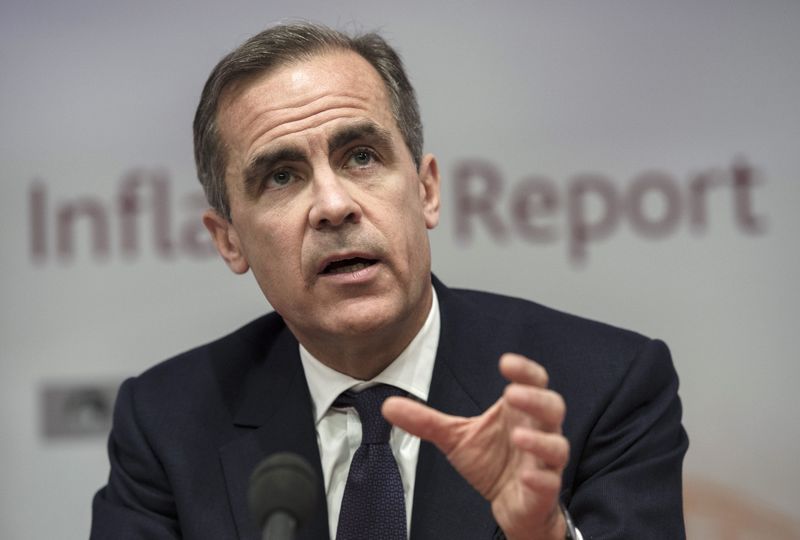LONDON (Reuters) - Bank of England Governor Mark Carney said Britain's economy might need more stimulus if inflation stayed around zero for more than a year but the BoE expects to raise interest rates next, not cut them, a newspaper quoted him as saying.
"The risk is that you go through a period of very low prices, say inflation around zero for the balance of the year, and that is principally driven by the big falls in petrol prices," Carney told The Daily Telegraph in an interview.
"That moves into inflation expectations. It influences wage settings, it broadens out to a range of other prices, and that imparts a persistence to low inflation," he said, adding that such circumstances might warrant "some additional stimulus."
He was speaking after the bank on Thursday said it expected Britain's economy would have its fastest growth since 2006 this year, helped by lower oil prices.
Investors interpreted the BoE's forecasts to be in line with market expectations for a first rise in interest rates in early 2016.
But the BoE also said it was ready to act - including possible interest rate cuts or more government bond-buying - if inflation proves weaker than expected.
British inflation has fallen to 0.5 percent, its lowest level in more than 14 years, and is likely to turn negative in the coming months before picking up again, according to the BoE's forecasts.
In his interview with the Telegraph, Carney said wages would be an important measure of whether inflation expectations were dropping too low, but the central bank would also watch other factors.
They included productivity levels, the profit margins and pricing power of companies, and how much a weakening of prices was due to the past strengthening of the pound.
Carney reiterated his view that the most likely next move by the BoE will be to raise interest rates, albeit slowly.

"The path of monetary policy is consistent with limited and gradual rate increases, and I wouldn't want to leave any misimpression," he told the newspaper.